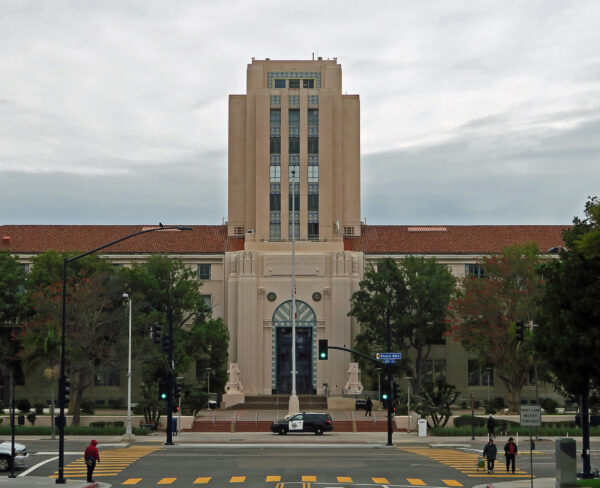
San Diego County has placed a hold on Veterans Village of San Diego pending several ongoing investigations. (Photo: Kirk K.)
For over 40 years, Veterans Village of San Diego, or VVSD, was known for helping veterans “reclaim their lives” through a variety of programs that addressed issues such as homelessness, drug abuse, and career training.
VVSD garnered both local and national acclaim. A partnership with San Diego County sent struggling veterans to the nonprofit’s doorstep for assistance. By many accounts, most veterans left with better prospects for their futures.
In both 2010 and 2011, VVSD was featured on CBS’ 60 Minutes for its Stand Down events, which provide homeless veterans with a free meal, new clothing, dental services, and more. After more than a decade, the nonprofit’s Stand Down 2022 earned similar praise.
A look through VVSD’s website and social media accounts would suggest the nonprofit is functioning much as it has for the last four decades.
However, a series of articles by inewsource reporter Jill Castellano reveals a much different picture of VVSD’s current state despite millions of dollars in both private and government funding. The first wave of articles in June exposed serious food and sanitation hazards as well as flagrant drug abuse, including a non-fatal overdose, within the nonprofit’s substance abuse program.
Despite the high-profile nature of the case, concerns from both residents and staff allegedly went unanswered by VVSD leadership. Not long after the overdose, VVSD employee Danelle Harrington was fired shortly after speaking to inewsource about the host of problems on the campus. By the end of June, San Diego officials had announced that an official investigation was underway.
Then in July, Castellano reported that VVSD resident Jennelle Self was murdered by another resident — and when interviewed, three VVSD employees said they “were not surprised to hear what had happened given the state of the transitional housing program.” Barely a week later, VVSD’s top executive resigned and another government investigation, this time by the U.S. Drug Enforcement Agency, was spurred by yet another overdose on the campus — this time, fatal.
As of early August, San Diego County is no longer sending veterans to VVSD for treatment “pending corrective actions” and further investigations by local and federal bodies.
It remains unclear what measures must be taken to improve care and treatment at VVSD. As of yet, neither the DEA nor local authorities have announced the results of their investigations.
Acknowledging the extensive investigation and reporting, California Legionnaire reached out to Castellano for a statement on VVSD’s ongoing and system issues:
As a reporter who has covered issues affecting veterans for years — in one of America’s largest military communities — I was intrigued when I was first contacted about problems at a renowned rehab center for former service members. It wasn’t long before sources were coming out of the woodwork, both staff and residents, to share their fears about safety, quality of care, health hazards, poor management and more.
Through months of interviews, records requests and document leaks, I was able to piece together a tragic tale: The drug treatment program run by Veterans Village of San Diego, a nationally celebrated, 40-year-old nonprofit, had declined to the point where basic services were suffering. Drug use was widespread, and relapses and overdose were an ongoing problem.
What struck me most in reporting this project was how torn people were about coming forward, because they truly loved Veterans Village and believed in its mission. We worked hard to provide a balanced picture of the challenges facing the nonprofit — including the COVID-19 pandemic and the lethal potency of opioid drugs like fentanyl.
When our stories came out in June, leadership at Veterans Village was resistant. They fired an employee quoted in the articles, claimed my reporting was influenced by people with “hostile motives” and said the stories were interfering with their operations. But outside groups had started to take interest in the concerns the project raised. Investigations were underway by the Drug Enforcement Administration and the state health department, lawmakers called on Veterans Village for answers, and behind the scenes, San Diego County officials were quietly trying to bring the nonprofit into compliance. In the midst of the unfolding events, the Chief Operating Officer of the institution resigned.
Then, following another overdose death, county officials put a freeze on admissions at Veterans Village “pending corrective action.” The step was an acknowledgment that the issues described in my reporting were valid and that the government was taking them seriously. Meanwhile, members of San Diego’s veterans community have come out in droves to thank my newsroom for the accurate, fair and serious journalism that has helped instigate change.